Atlanta suburb battling surging crime aims to secede
Buckhead City Committee CEO Bill White joined 'Fox & Friends First' to discuss how rampant crime has crippled Buckhead's streets and Stacey Abrams' push to defund the police despite the violent trends.
Grassroots movements of Americans seeking a political divorce from their fellow citizens have recently gained traction amid deepening cultural rifts, according to multiple figures involved with secessionist organizations who spoke to Fox News Digital.
Such movements have emerged in every region of the U.S. and vary in their goals. Some aim for entire states to leave the union to form a new country, while others endeavor more simply that rural red counties secede from the domination of blue urban centers to form new states. All agree that the disagreements with their political opponents have grown intractable.
'A Don Quixote operation'
"We're at a point, I think, where America is not necessarily in the balance, but the institution known as the United States is in the balance," Daniel Miller, president of the Texas Nationalist Movement (TNM), told Fox News Digital.
Miller's organization endeavors to see Texas leave the union and revert to the sovereign republic it was from 1836, when it broke from Mexico, until it was annexed by the U.S. in 1845.
"People are beginning to ask themselves this question: ‘If their state was already a self-governing, independent nation, knowing everything they know about the federal government, would they vote to join the union today?' And I think many people are coming to the conclusion that the federal government is not really fit for purpose; there is a better way," Miller said.
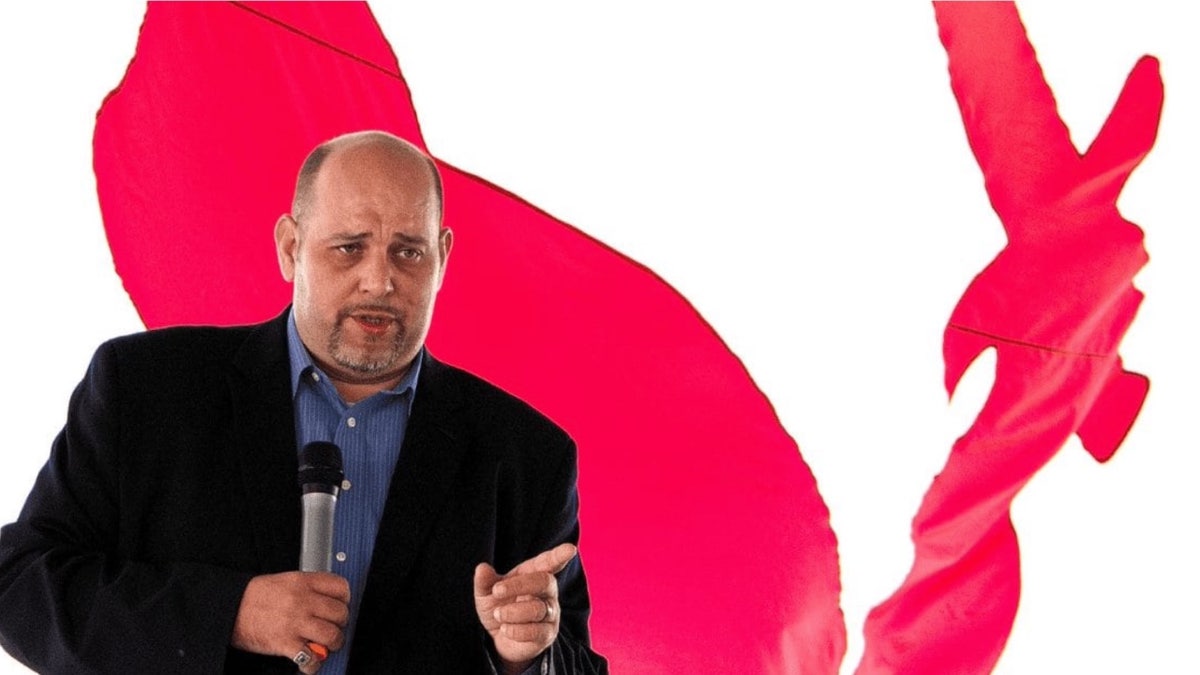
Daniel Miller, president of the Texas Nationalist Movement, believes Americans increasingly question if the federal government is "fit for purpose." (Daniel Miller)
Miller, who wrote "TEXIT: Why and How Texas Will Leave the Union" in 2018, offered the unrestrained surge of illegal immigration at the Texas border during the Biden administration as a prime example of why he believes the state should go its own way.
When TNM began in 2005, Miller said it "looked almost like a Don Quixote operation, tilting at windmills," but he pointed out that recent polls indicate soaring support among Texans for offering voters a referendum on secession.
MASSIVE GROUP OF MIGRANTS HITS TEXAS BORDER AS END OF TITLE 42 LOOMS
In 2021, state Rep. Kyle Biedermann, a Republican from Fredericksburg, Texas, filed a bill in support of a referendum election that would give Texans the chance to decide on the creation of a joint legislative committee "to develop a plan for achieving Texas independence."
In June, the Texas State Republican Convention adopted a platform that included urging the Legislature to put such a referendum before the people of Texas in November 2023.
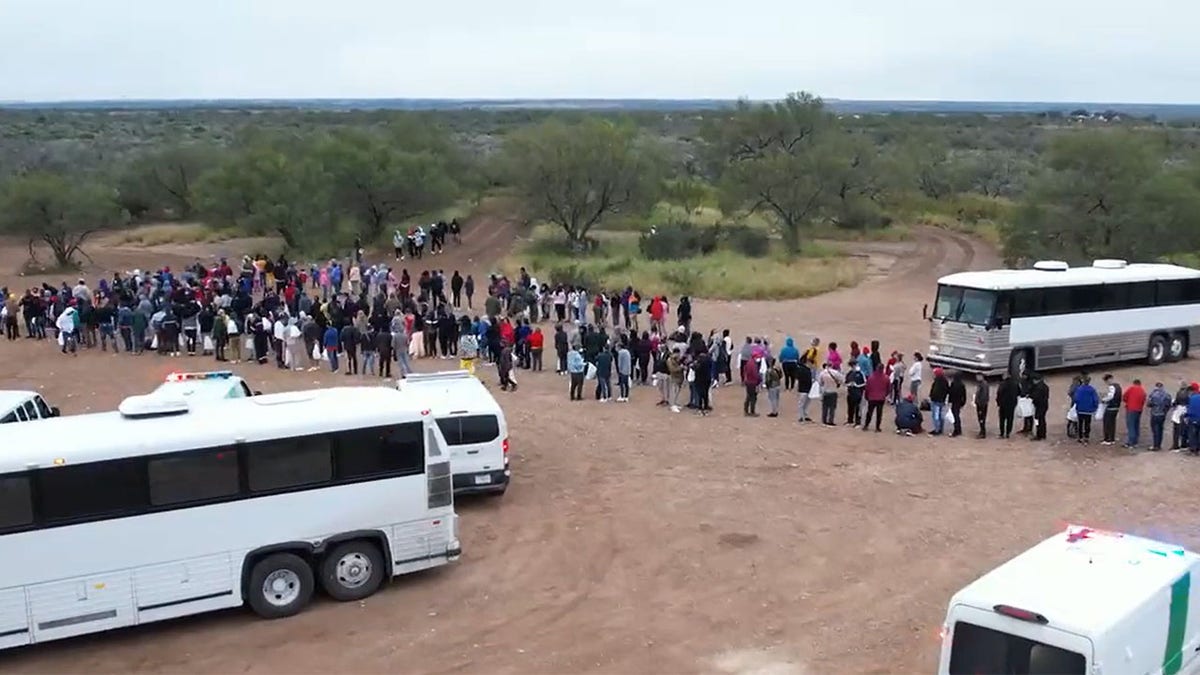
Daniel Miller offered the unrestrained influx of illegal immigrants on the Texas border as a prime example of why the state should secede from the union and go its own way. (Fox News)
According to a Defend Texas Liberty PAC poll of randomly selected Texas GOP primary voters in October, 59% of respondents said they are in favor of a secession referendum, with only 25% responding against such a measure.
A 2021 poll by Bright Line Watch and YouGov found that 37% of respondents nationwide expressed a "willingness to secede" from the union.
'Little more than talk'
Allen C. Guelzo, who serves as the senior research scholar in the Council of the Humanities at Princeton University, told Fox News Digital that he believes Americans who speak of secession are not adequately considering the obstacles.
"I always have to recognize that the people who talk about secession are not thinking about the cultural, the legal or the economic consequences of what they're recommending, and that leads me to think it really is not serious," said Guelzo. "It's not more than talk."
Guelzo, an award-winning historian who has written extensively about Abraham Lincoln, the Civil War and Reconstruction, said any attempt by a state to leave the U.S. would fly in the face of precedent established in Texas v. White, an 1869 Supreme Court decision that ruled unilateral state secession is unconstitutional.
'TEXIT' TEST: TEXAS LAWMAKER FLOATS REFERENDUM TO SECEDE FROM US
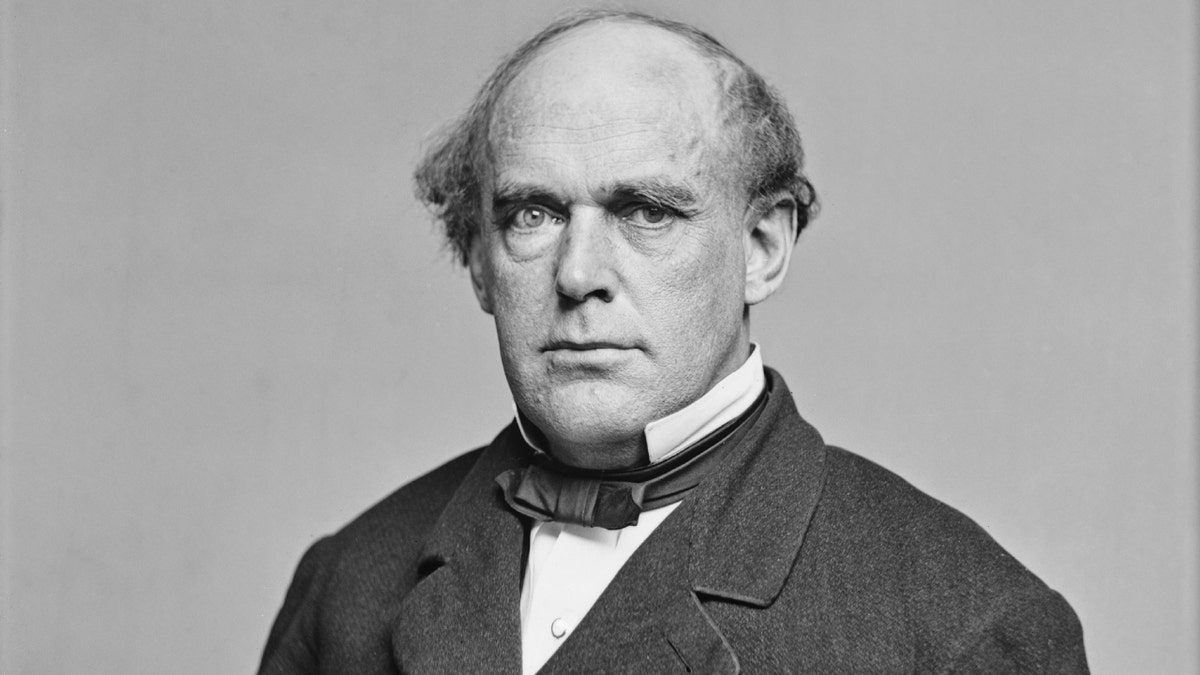
The Supreme Court under Chief Justice Salmon P. Chase, above, ruled in 1869 that states could not unilaterally secede from the union and that the acts of the Texas Legislature under the Confederacy were "absolutely null," even if ratified by a majority of Texans. (Universal History Archive via Getty Images)
Guelzo, who labeled secessionist proposals as "a bipartisan foolishness" that has lately been floated from both sides of the aisle, predicted that any state endeavoring to obtain independence would also smack up against the steep hurdle of being recognized by the other nations of the world.
"If it is a legal and constitutional impossibility, who is going to want to set up trade or diplomatic relations with such a secessionist rump? It seems to be a question that almost no one who talks about secession wants to answer, and that's because the talk about secession really is little more than talk," said Guelzo, who likened such rhetoric to someone slamming the door on their way out of a room after losing an argument.
GREG GUTFELD: AS LONG AS 'WE'RE IN THIS MELTING POT TOGETHER,' CIVIL WAR ISN'T POSSIBLE
Movements within states to change borders are "a different category entirely," he continued, noting "there is nothing absolutely sacrosanct about existing state boundaries." He added that such efforts, however, also face profound legal challenges.
"Constitutionally, you cannot break up a state without the consent of the state that is being broken up," he said.
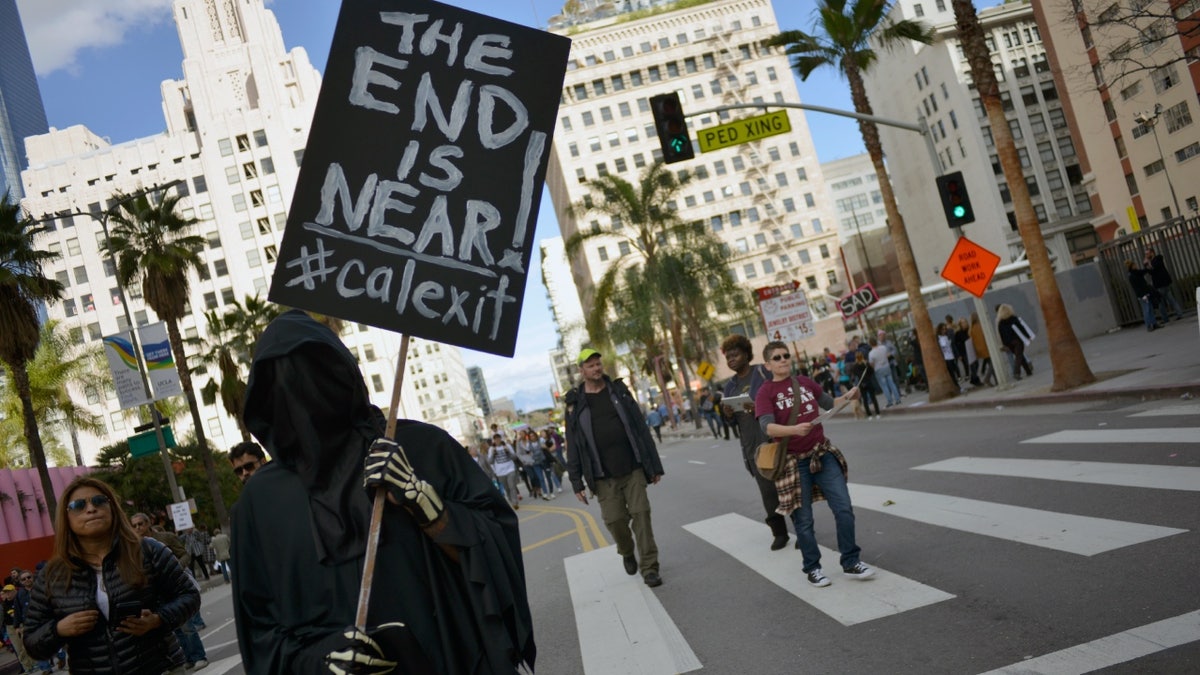
A demonstrator holds a "Calexit" sign during the Women's March in Los Angeles on Jan. 21, 2017, in protest of former President Trump's inauguration. Professor Allen C. Guelzo, an award-winning historian of the Civil War era, noted secessionist proposals have lately emerged from both sides of the aisle. (Chelsea Guglielmino via Getty Images)
Guelzo acknowledged that recent midterm elections seem to indicate that "the red areas are getting redder, the blue areas are getting bluer, and it appears that never the twain shall meet," but noted that except for the Civil War, Americans have weathered deep tensions among themselves throughout their history without fracturing.
Because of a shared culture made even more uniform by modern technology, Guelzo believes that despite their deep political divisions, "the fundamental unity of the American people" is stronger than it was when the nation briefly broke apart from 1861 to 1865.
BIDEN SAYS US MORE DIVIDED THAN AT ANY TIME SINCE THE CIVIL WAR
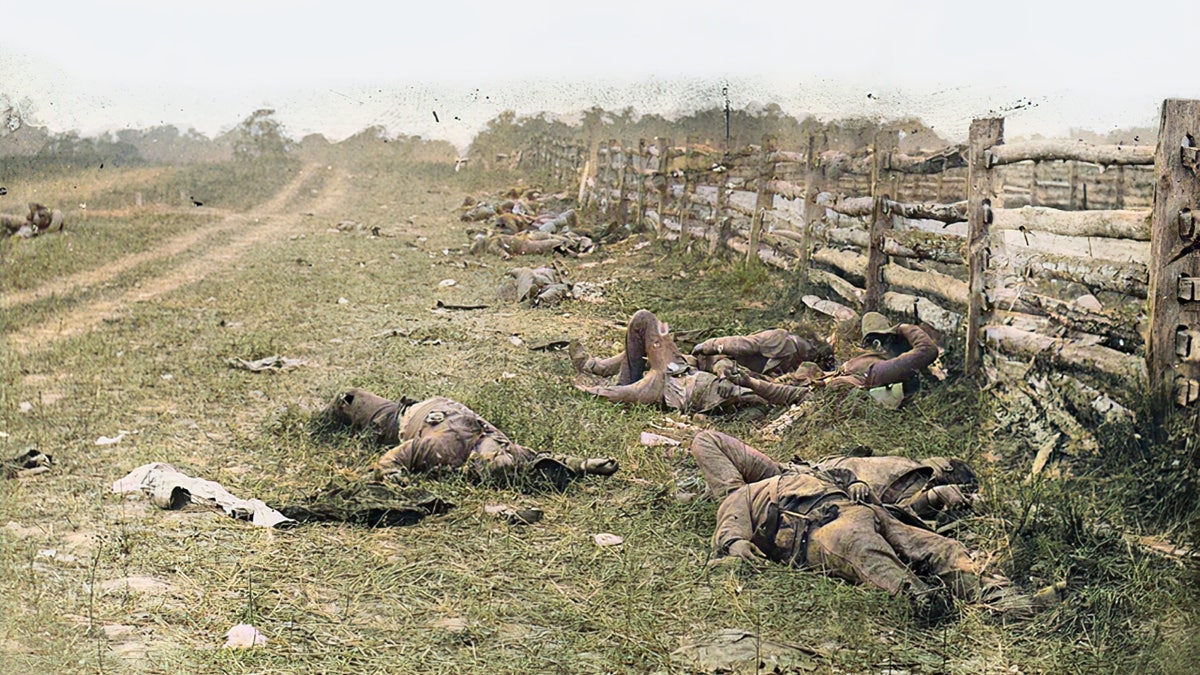
A colorized photograph of Confederate soldiers killed during the Battle of Antietam in 1862. Allen Guelzo believes that despite deep political divisions, "the fundamental unity of the American people" is stronger now than when Southern states seceded in 1861. (Gado / Contributor via Getty Images)
"It really boggles the imagination to imagine that one group of states or a state alone could detach itself in any way successfully," Guelzo said. "Or even if it did detach itself, the day afterward people would wake up, smack their foreheads and say, 'What were we thinking?'"
'One city with all the power'
G.H. Merritt, who serves as chairwoman of the grassroots organization New Illinois, told Fox News Digital that far from impeding them, modern technology has widened the efforts of her movement, which aims to form a new state and emancipate Illinois' conservative rural counties from the political dominance of Chicago and Cook County in the state's General Assembly. New Illinois so far has committees in 30 of Illinois' 102 counties, Merritt said.
"We do not call this 'secession,'" Merritt said of New Illinois' goals. "We never use that word, because secession is more like saying, 'Hey, I'm taking my marbles and going home.' And what we're doing is following the process laid out in Article 4, Section 3 of the U.S. Constitution, so it's a different thing."
'PANDEMIC OF VIOLENCE': LIGHTFOOT'S RECORD ON CRIME AT THE FOREFRONT OF CHICAGO MAYORAL ELECTION
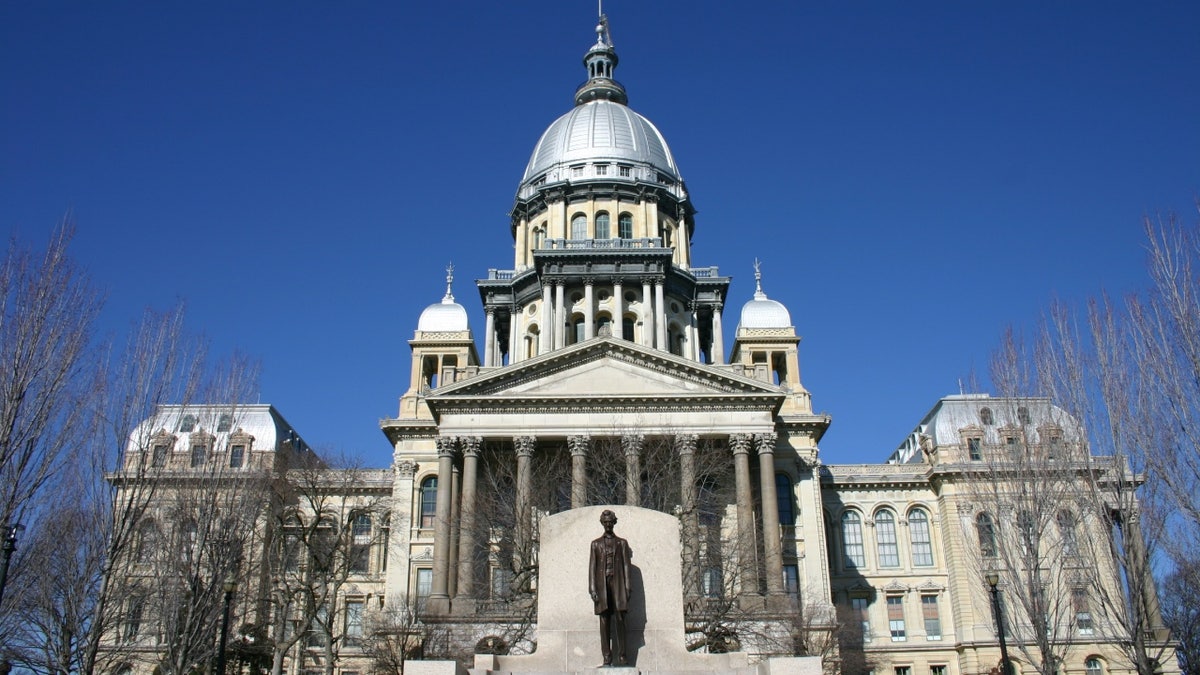
New Illinois is a grassroots organization that seeks to create a new state out of Illinois' conservative rural counties, thereby emancipating them from the political domination of Chicago and urban Cook County in the state's General Assembly. (On-Track via Getty Images)
Merritt, who has been in touch with members of the similar New California movement, blamed some of the present political tension between urban and rural Americans on Reynolds v. Sims, a landmark 1964 Supreme Court decision that ruled the electoral districts of state legislative chambers must be roughly equal in population.
Everett Dirksen, a senator from Illinois who served as Senate minority leader at the time, railed against the ruling and led an abortive effort to pass a constitutional amendment that would establish state legislative districts based on land area instead of population. "The forces of our national life are not brought to bear on public questions solely in proportion to the weight of numbers," he argued.
"If they were, the 6 million citizens of the Chicago area would hold sway in the Illinois Legislature without consideration of the problems of their 4 million fellows who are scattered in 100 other counties. Under the Court's new decree, California could be dominated by Los Angeles and San Francisco; Michigan by Detroit," Dirksen warned.
MSNBC CONTRIBUTOR CLAIMS SUPREME COURT WILL ALLOW 'AUTHORITARIAN TAKEOVER' OF US

Former Sen. Everett Dirksen, R-Ill., who served as Senate minority leader from 1959 until his death in 1969, warned that Reynolds v. Sims would lead to urban Americans being overrepresented in state legislatures to the detriment of rural constituents. (Bettmann via Getty Images)
"That's what happened," Merritt said. "And that's why this is going on in Illinois, California, New York, Oregon, because you have one city with all the power."
F.H. BUCKLEY: IS AMERICA ON THE BRINK OF A THIRD SECESSION? HERE'S WHAT IT WOULD LOOK LIKE
"An urban area versus a rural, small-town suburban area, has different needs, interests, cultures and economies. And so if all the legislation going through is in the interests of the densely populated urban area, and it's imposed on the entire state, eventually the people realize they are not being represented," she added.
'A long-standing problem'
Conservative rural voters in Illinois who believe they lack fair representation are echoing their counterparts in Oregon and elsewhere, according to Matt McCaw, a leader in the Greater Idaho movement.
"We have this long-standing problem in Oregon, which is that the west side of Oregon is very populated and very left-leaning, while the east side of Oregon is very rural and very conservative," McCaw explained to Fox News Digital.
McCaw, a lifelong resident of Oregon, recounted how the idea for Greater Idaho emerged in 2019 when some fellow Oregonians "were sitting around in a pizza place" trying to think of how best to bridge the widening gulf between liberals and conservatives in the state.
TWO ADDITIONAL OREGON COUNTIES VOTE TO BECOME PART OF 'GREATER IDAHO'
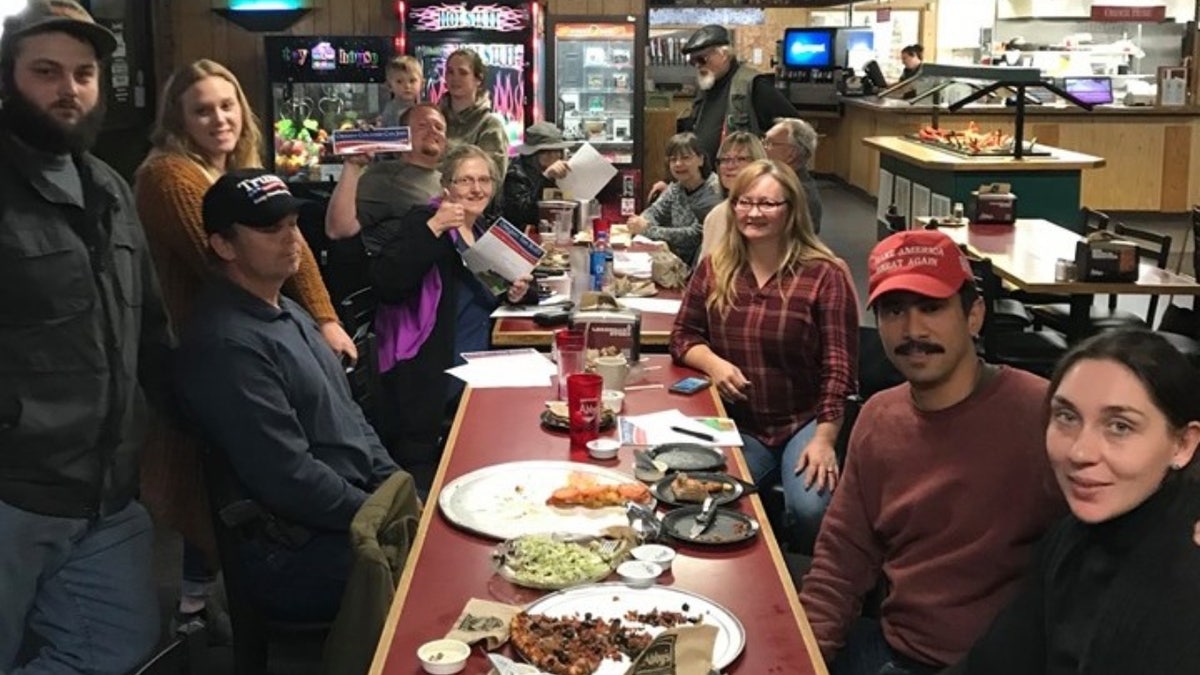
The first meeting of the Greater Idaho movement, above, took place October 2019 in small-town Rogue River, Oregon. (Greater Idaho)
Deciding that secession from the liberal rule of the Portland area was the best solution, they went county by county taking to voters their idea of shifting the border of red-state Idaho westward.
Their measure made it on the ballot and recently clinched support from a majority in two more Oregon counties in November, securing them election wins in 11 of the 15 counties that are proposed to depart the state to join its more conservative neighbor.
Greater Idaho's supporters argue that its electoral victories indicate that all 15 counties would vote to support the measure if given the chance.
SECEDE FROM OREGON? 'GREATER IDAHO' IS ON THE BALLOT IN TWO CONSERVATIVE COUNTIES
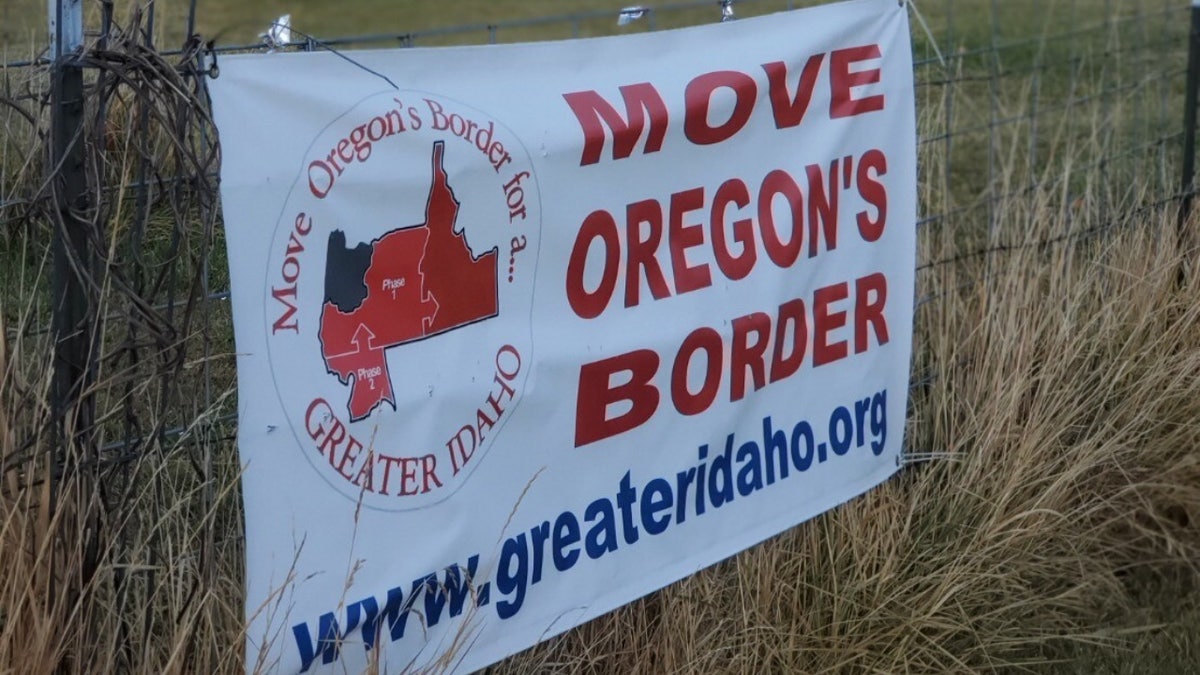
A rural sign advertises the Greater Idaho movement, which seeks to shift the border of Idaho westward to the Cascade Mountains in an effort to ease the political tension between Oregonians in the liberal Portland area and those in the rest of the state. (Greater Idaho)
While the border separating residents of Oregon is now a cultural divide, McCaw said that it also falls roughly along the Cascade Range geographically, which is where the border of the proposed new state would be. "Borders can be moved, and they should be moved to help get people the government that they actually want," he said.
"A border is an imaginary line that's set there to group similarly minded people, to make communities better in some way," McCaw continued. "The border between Idaho and Oregon was set almost 200 years ago. At the time, it made sense to put the border there, but it no longer makes sense where it actually is."
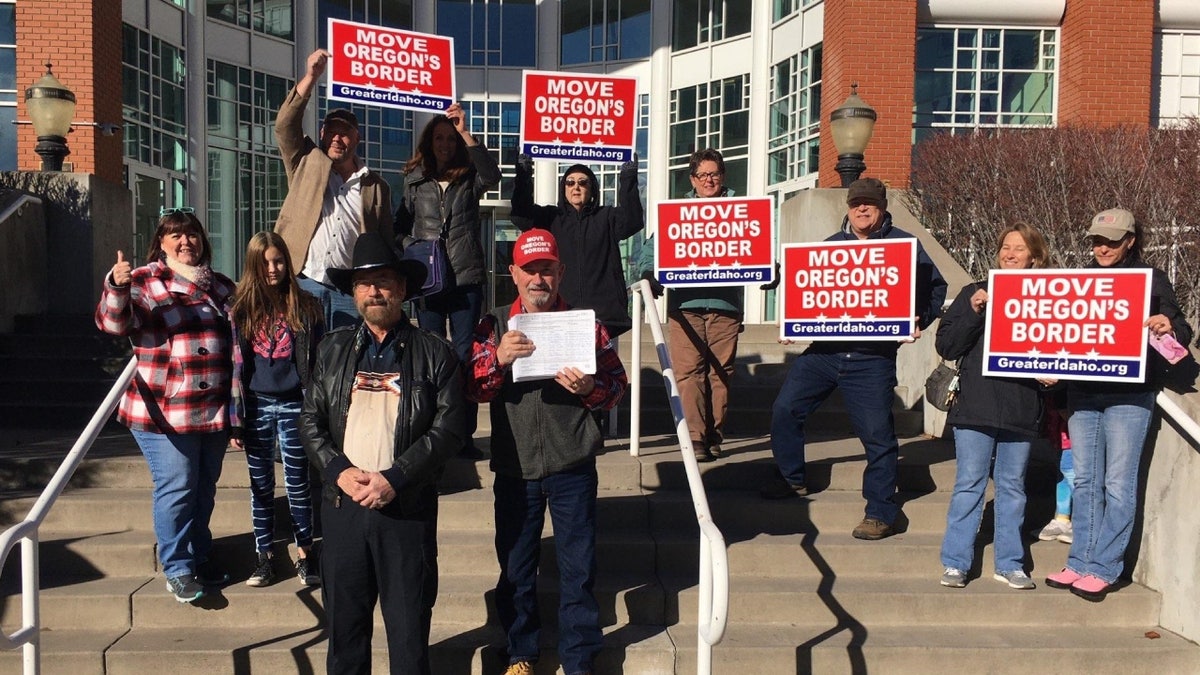
Supporters of the Greater Idaho movement in Klamath County, Oregon, submit signatures to get a ballot initiative in May 2022. (Greater Idaho)
"If you look at this last election, you see that it's not just Oregon," said McCaw. "This is true across the United States, that we have these major urban areas that vote one way, and everywhere else in the state that's rural votes another way. That causes all sorts of polarization and political tension that doesn't need to be there. People are looking for a solution."
CLICK HERE TO GET THE FOX NEWS APP
If his movement's efforts succeed, which would constitutionally require a majority of support in both states and the approval of Congress, McCaw said, "Eastern Oregon has the government they want, western Oregon has the government they want, and the political tension goes away."

